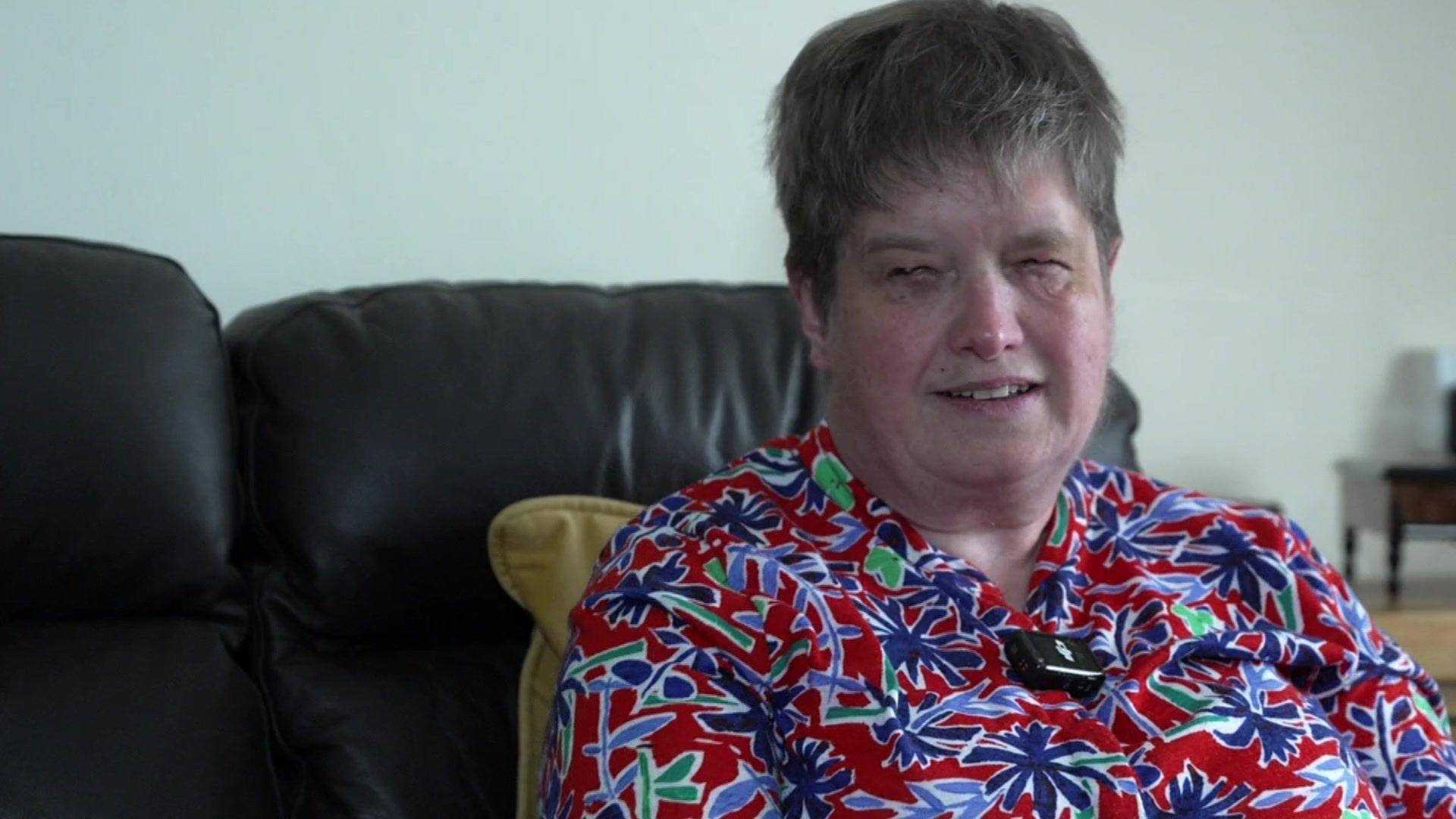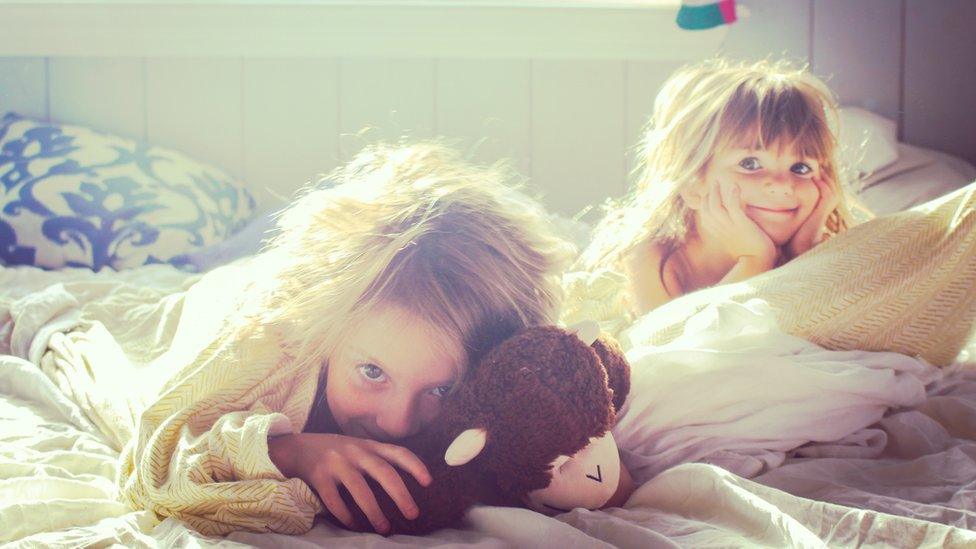Sleep disorder worse than sight loss, sufferer says

Tina Snow is completely blind
- Published
A blind woman who suffers with a common sleep disorder has described it as "worse than sight loss".
It's believed that between 50-70% of people without vision suffer from the condition non-24-hour sleep-wake disorder (N24SWD).
The condition is caused by the body's inability to calculate the time of day, meaning it fails to produce the sleep hormone melatonin.
Tina Snow, from Newport on the Isle of Wight, is completely blind and suffers with N24SWD.
Tina Snow's body is unable to calculate the time of day
Ms Snow told the BBC that "basically, day is night and night is day" in her world.
"It's like some sort of torture," she said.
"Deep sleep deprivation is just really depressing and you just know when you need sleep, when you need to switch off, but you just can't do it."
"I'd certainly say that is worse than sight loss."
Melatonin is a hormone that the brain produces greater amounts of in response to darkness.
It manages people's natural internal body clocks, with smaller amounts of the hormone produced when it is light outside.
But Ms Snow says due to her blindness, her body does not know when to produce the hormone - affecting her circadian rhythm and meaning she often has the desire to sleep at "stupid hours".
She recently started a new form of treatment, involving taking a medicine at particular times of day.
"It's a bit like a time switch - I take it at 22:00 BST every night and it acts as a switch to produce a synthetic hormone which produces melatonin and tells my brain went to sleep."
When asked if the treatment had improved her quality of life, Ms Snow said: "Definitely."
Follow BBC South on Facebook, external, X (Twitter), external, or Instagram, external. Send your story ideas to south.newsonline@bbc.co.uk, external or via WhatsApp on 0808 100 2240, external.
- Published19 May 2019

- Attribution